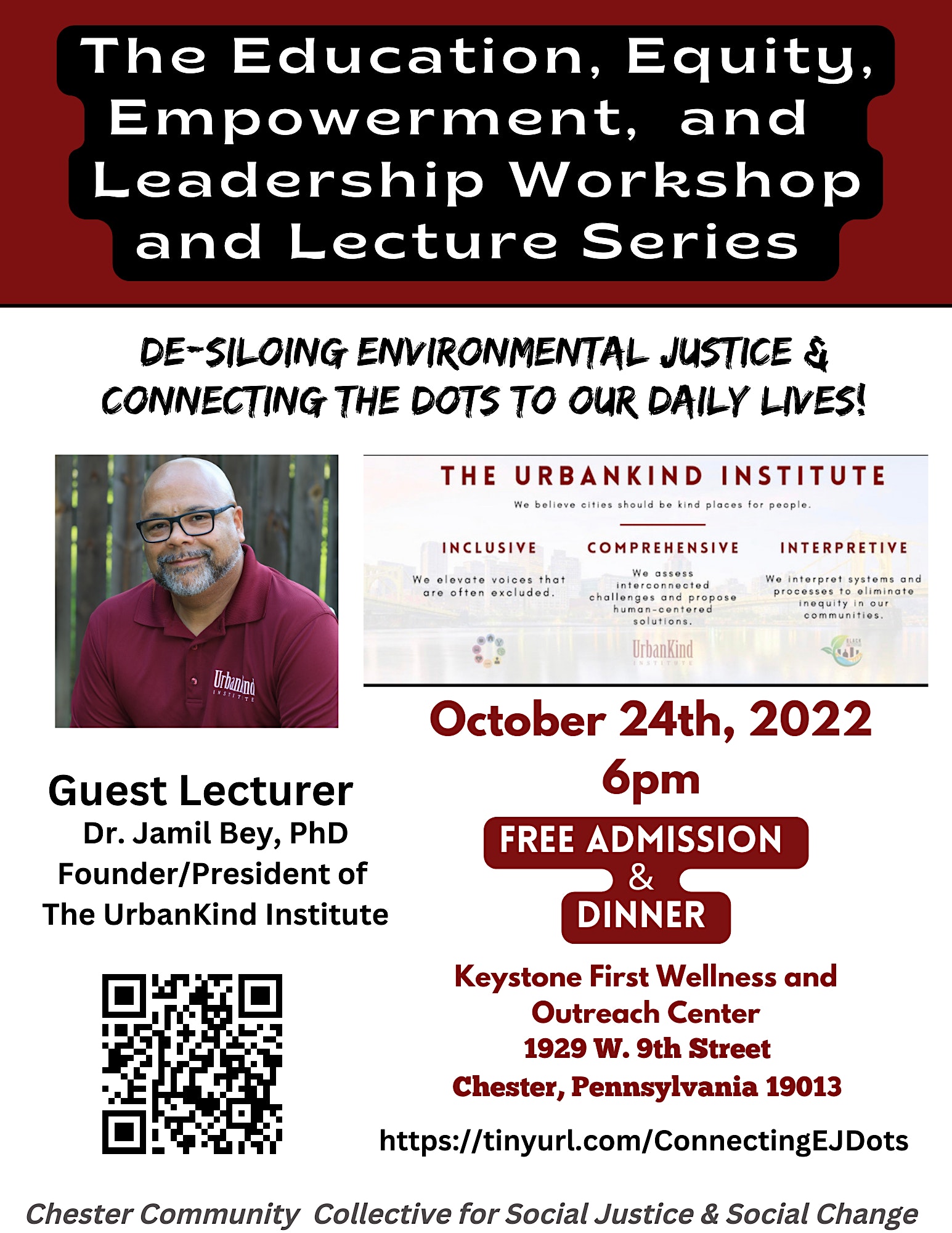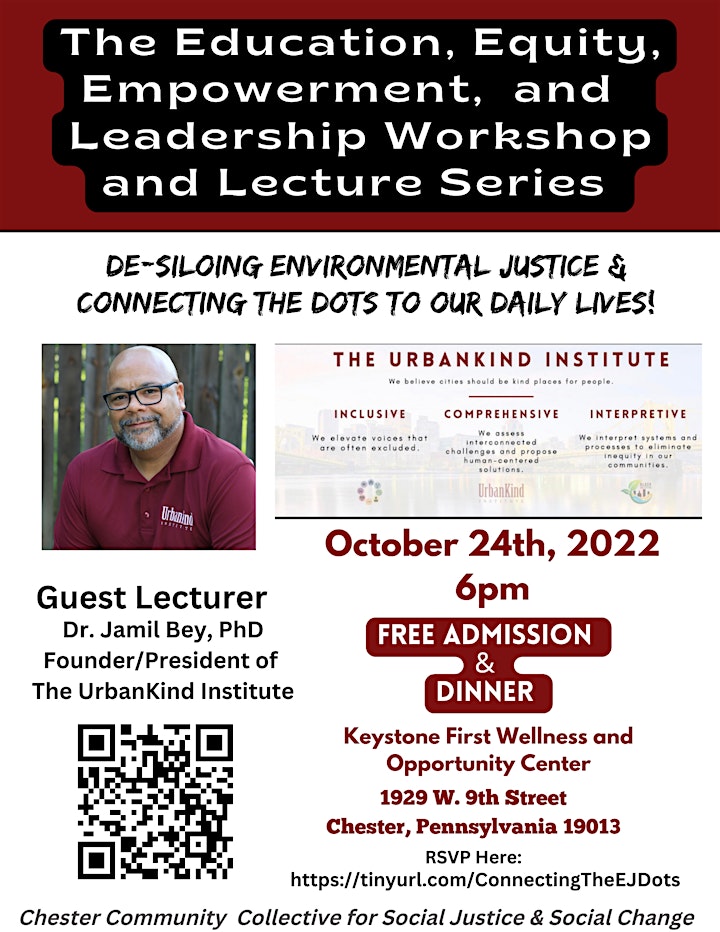Please be sure to check the event organizer’s website for any last-minute changes or cancellations prior to attending.
Have an event that will fit well on our calendar?

- This event has passed.
Connecting The Dots in Environmental Justice

Note: This is a Zero Waste event! You are encouraged to Bring Your Own Everything: cup/plate/utensils/cloth napkin! We all have a part to play to make it to zero waste so you can do your part and BYOE. You can also bring your own takeout container and use it as a plate. We had a large amount of leftover food and beverage at last month’s event. Covanta’s trash incinerator is Chester’s biggest stationary source of industrial air pollution. Our mission is to divert as much trash as possible so we can “starve the beast.”
Join us for Connecting The Dots in Environmental Justice! A cross-state conversation about what it means to de-silo Environmental Justice featuring Dr. Jamil Bey, founder and president of the UrbanKind Institute. Attendees will learn how geography affects our environment and the connection between envionmental justice, criminal justice, the housing crisis, food insecurity, and other pressing issues in our communities. This is a free community event and dinner is included.
*Masks are welcomed
*Students are encouraged to attend
About Dr. Jamil Bey, PhD
Jamil Bey, PhD is the founder and president of UrbanKind Institute, a think-and-do tank committed to advancing policies, practices, and programs that are kind to urban people and environments. Jamil is a human geographer with 14 years of experience research and analysis of policy and practices that improve efficiency and outcomes in human experiences. As a researcher, analyst, and consultant he specializes in challenging common assumptions about ordinary concerns while bringing alternative perspectives for consideration. Trained as both a professional geographer and as an educator, Dr. Bey excels in spatial analysis and synthesis, pedagogy, and instruction. His integrated systems view of the world provides highly contextualized conclusions, and recommendations that consider the interconnectivity of economics, politics, history, culture, health, social movements, and the environment in his analyses.

Details
- Date: October 24, 2022
-
Time:
6:00 pm - 8:00 pm
- Website: https://www.eventbrite.com/e/connecting-the-dots-in-environmental-justice-tickets-439823111767
Venue
- Keystone First Wellness and Opportunity Center
-
1929 West 9th Street
Chester, PA 19013 United States

